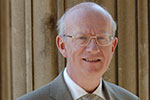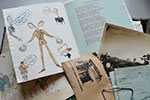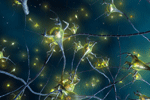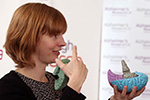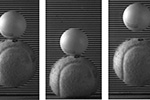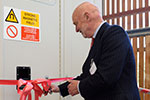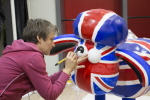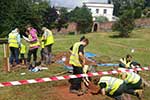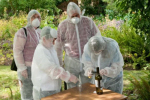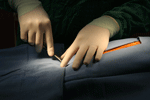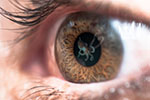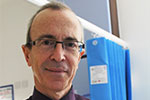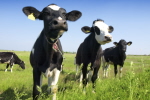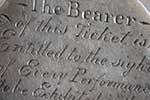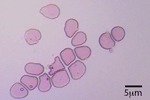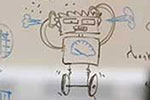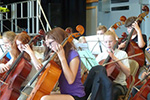Honorary degrees awarded at the University of Bristol – Friday, 17 July
The University of Bristol is awarding an honorary degree to David Ord at a degree ceremony taking place today [17 July] in the Wills Memorial Building.
The University of Bristol is awarding an honorary degree to David Ord at a degree ceremony taking place today [17 July] in the Wills Memorial Building.
Professor Robert Fowler of the Department of Classics and Ancient History has achieved the rare distinction of being elected Fellow of the British Academy, the national academy for the humanities and social sciences.
The personal archive of one of the twentieth century’s foremost theatrical designers, Oliver Messel (1904-1978) has been acquired by the University of Bristol Theatre Collection, thanks to a generous grant of £80,000 from the National Heritage Memorial Fund (NHMF). The NHMF grant was bolstered by generous support from alumni, friends, and charitable foundations to help meet the £100,000 purchase price.
Findings, published today [15 Jul] in Nature Communications, reveal the extent a mutation associated with autism and epilepsy plays in impairing a biochemical process in the brain. The study, led by University of Bristol researchers, could provide a new target for treating neurological disorders.
With the UK facing a national skills shortage in electrical and electronic engineering and computer science, researchers from the Bristol Robotics Laboratory (BRL) will be inspiring a new generation of robotic pioneers at the Bristol Harbour Festival this weekend [Saturday 18 July] as part of the BBC Make it Digital initiative.
A researcher from the University of Bristol’s School of Veterinary Sciences has been awarded the European Advisory Board on Cat Diseases (ABCD) & Merial Young Scientist Award 2015 for her contribution to feline infectious disease research.
Scientists in Bristol will come together on Monday 20 July to hold a free public meeting to discuss current dementia research. The meeting will involve short talks from clinicians and researchers, allowing members of the public to ask questions about Alzheimer’s disease and other forms of dementia.
Dr Maria Fannin, Senior Lecturer in the School of Geographical Sciences, has won the Feminist Theory Essay Prize for the best article published in the journal Feminist Theory in 2014.
Researchers from the University of Bristol have revisited a well-known classroom demonstration where a lighter ball is dropped on top of a larger heavier ball and offer a model to explain the phenomenon.
A Bristol student is hoping to smash the Guinness World Record for the fastest crossing of Loch Ness by tandem kayak. James Reilly, a 21-year-old medical student at the University of Bristol, and close friend Ted Simpson are hoping to cross the 23 mile loch in under five hours and 19 minutes to set a new record.
Members of the public will have the opportunity to see television presenter and leading gardening writer, Monty Don, when he tours the University of Bristol Botanic Garden for the first time this weekend [Sunday 19 July].
Healing times for skin ulcers and bedsores can be reduced by a third with the use of low-intensity ultrasound, scientists from the Universities of Sheffield and Bristol have found.
Emeritus Professor William Driver Howarth, a member of the Department of French from 1966 to 1988, died on 3 July. His colleague Dr Edward Forman has provided this tribute, acknowledging help from the late Dr Stan Taylor and from the friends mentioned in the notice.
Professor Wendy Larner, Dean of the Faculty of Social Sciences and Law, has been appointed to the role of Provost at Victoria University of Wellington, New Zealand.
Dr Marianne Ailes, Senior Lecturer in French in the School of Modern Languages, has been awarded a Leverhulme International Network grant for a multi-volume study of the myth of Charlemagne.
Dr Tom Scott, Director of the Interface Analysis Centre, has been awarded the Vickerman Prize 2015.
Researchers from the University of Bristol have investigated what leads to high use of antibiotics for children with coughs and found the motives for their use are complex but centre around children being vulnerable.
Members of the public and industry stakeholders are being asked to share their views on how greyhounds should be cared for and trained that could influence the future of greyhounds in the Australian state of New South Wales (NSW) and beyond.
Horses in the region will benefit following the opening of a new standing equine magnetic resonance imaging (MRI) facility at the University of Bristol’s equine centre.
Know Your Bristol on the Move, a community project in which the University’s Department of Film and Television is collaborating, is taking to the water this Wednesday (8 July).
As part of the University’s ambition to inspire change, the University is proud to be supporting Bristol Post’s Green Capital Awards 2015.
Lin Hall, an administrator within Professional Services, passed away in April aged 63. Dr David Langley, Director of Research and Enterprise Development, offers a tribute.
With a proud history linked to music and culture, the Victoria Rooms in Clifton will embrace a modern-day icon when it becomes home to a giant Union Jack-inspired Shaun the Sheep, aptly named Flock ‘n Roll.
Some of the West’s fascinating but lesser known wartime heritage has been explored by archaeologists from the University of Bristol: a Second World War ‘Stop Line’ built to protect Bristol, and practice trenches dug by First World War soldiers on Brandon Hill.
Dr Rebecca Pearson, a research associate in epidemiology in the School of Social and Community Medicine, has been highly commended for her work on maternal mental health in the 2015 L’Oréal UK & Ireland Fellowships For Women in Science awards.
From making your own perfume to learning about forensic science, Thornbury Science Festival promises to be a fascinating and action-packed 10 days. The festival, organised by a member of staff from the University of Bristol and involving a number of other University staff and student volunteers, takes place from Thursday 9 July to Saturday 18 July. It is open to everyone and features a play, interactive activities and engaging talks.
Scientists at Bristol studying the body’s inflammatory response to wounds following cancer surgery or biopsy have found that these procedures may cause growth signals to be delivered to any remaining cancer or pre-cancerous cells which may negatively influence disease progression.
An experiment originally designed to test the visual abilities of octopuses and cuttlefish has given University of Bristol researchers an unprecedented insight into the human ability to perceive polarized light – the supersense that most of us don’t even know we have.
A University of Bristol professor, consultant and inventor, Andy Levy, puts patient and student experience at the forefront of the products he invents.
With the average cow producing 1000 times more methane than a human, meat production plays a big role in greenhouse gas emissions. But in a world where there’s a growing appetite for meat, how can our food system keep everyone happy while reducing its environmental impact?
Eminent modern historian Professor Sir David Cannadine delivered a lecture on Sir Winston Churchill’s unique relationship with the University of Bristol to an invited audience in London earlier this month. The lecture was the second in a series of new events entitled ‘Bristol Talks’ that are held in London.
Four silver tokens issued to shareholders and a supporter who assisted in the founding of Bristol Theatre Royal (now Bristol Old Vic) in 1766 have come home to Bristol. They were donated to the University of Bristol Theatre Collection this week by eighty-three-year-old Geraldine Menez, whose great-grandfather, Henry Augustine Forse, was involved in the re-modelling of the theatre in 1902.
Science and engineering businesses in the region are being encouraged to work with the University of Bristol thanks to a £1.4 million grant to aid innovation.
The first human trials of lab-produced blood to help create better-matched blood for patients with complex blood conditions has been announced by NHS Blood and Transplant. Research led by scientists at the University of Bristol and NHS Blood and Transplant, used stem cells from adult and umbilical cord blood to create a small volume of manufactured red blood cells.
A pair of inspirational female scientists who founded an initiative that takes science out of the labs and highlights the work of women in cutting edge research have been named Points of Light by Prime Minister David Cameron.
A large-scale review that evaluated the medical efficacy of cannabinoids — the active chemical compounds in marijuana — across a range of conditions found there is moderate evidence to support the use of cannabinoids for the treatment of chronic pain and spasticity in patients with multiple sclerosis. The meta-analysis, led by the University of Bristol and published in the Journal of the American Medical Association, analysed the results of 79 different randomised-controlled studies involving more than 6,400 patients to investigate the benefits and side effects of medical cannabinoids.
The University of Bristol has signed a partnership agreement with Airbus Group to formalise and build on the commitments from both parties for training, education and diversity.
The UK’s ability to develop and exploit the vast potential of Robotics and Autonomous Systems was given a major boost today [Wednesday 24 June] with the formal launch of the EPSRC UK Robotics and Autonomous Systems Network (UK-RAS Network).
The University of Bristol Student’s Union (Bristol SU) will be buzzing with the sound of music when over 100 local primary school students take part in an orchestra workshop today [Tuesday 23 June].
Jane Memmott, Professor of Ecology in the School of Biological Sciences, has received the 2015 Marsh Award for Ecology.

